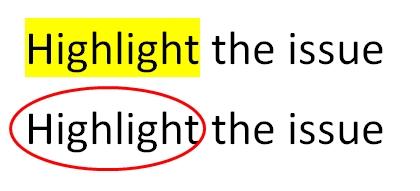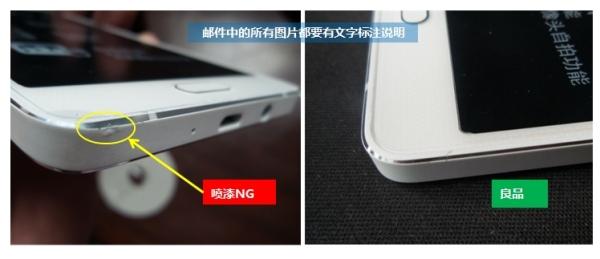
e.g.
Happy new year! - I hope you and your family had a great holiday and enjoyed some well deserved time off. Thank you again for the terrific effort and a strong result last year.
Hi Steven,
It is my pleasure to talk with you earlier today. Thank you for contacting xxxx.
I am writing to share more information with you about xxxx and our digital signage system. The attached brochure will provide you with an overview of our post popular system features. You can also learn more by our website at xxx.com. As you will see, xxxx has been providing industry-leading signage system for past 25 years and we are honored to have our system in place with over 2,500 hotels, resort and casino around the world. We would be interested in exploring a relationship with xxx in order to explore digital signage opportunities in China. As I’ve mentioned, our primary customer focus is with hotels, resorts, casinos. Our digital display system is designed to meet the needs of the hospitality market. We are fortunate to have earned the prefered vendor status with many of the leading hotel brands including: …… and many more. Please let me know if you have relationships with any hotels and we can develop a plan to pursue the opportunity together.
Please review our information at your earliest convenience and let me know if you have any questions. I look forward to our next communication.
Regards,
xxxx
- Email etiquette
- Thanks for the quick reply.
- Thanks for getting back to me.
- THanks for the update on the situation.
- Thanks for the updated information.
- Thanks for gathering the information this week on this issue.
simple reply
- Thank you.
- Well noted.
- Noted/Received with thanks.
- Good information.
2)道歉
如果是回邮件回得晚了,先道歉,貌似中文很少有这个习惯(以下sorry也可以替换成apologize,更正式一点,发给重要的人或者群发)
Sorry for the late reply.(中国人普遍这这一种,也有老外用,不过下面两种更多) Sorry I haven’t got back to you sooner . Sorry for the delay getting back to you.
如果是临时通知别人是什么事情
Apologies for the late/short notice.
如果是上一封邮件没写清楚导致收件人误解了
I apologize if this was not made clear
提前给别人预警如果自己的措辞过于强硬。
I apologize if this may make you feel uncomfortable/bad. I apologize if this may sound a little harsh.
3)收尾套路
最后收尾的套路,一般都是问别人意下如何。(不要用please tell me …这种句式,从来没见过老外用的)
Please let me know what you think. Please let me know your thoughts. Let me know if you have any questions or concerns. (最常见) Please let me know if there are questions. Looking forward to your input/insight(用insight/input代替opinion) That’s my idea, what’s your idea?(也有直接这样说的) Please review the lengthy e-mail and provide feedback on how we can proceed.(如果邮件太长了)
或者,干脆下面的话结尾,
I’ll let you know more tomorrow(表示今天没说完,明天再说更多) Please call me if you like.(有什么事打我电话)
4)称呼
普通工作邮件,直接称呼名字字就好了,比如Hi Steven,不需要用Mr., 甚至写给总裁的邮件,也是直接说Hi Bill,不需要Hi President Johnson。否则真的真的太令人不自在了。
只有德国人是个例外,喜欢加Mr./Ms. 我以前在德资企业工作,发给女性的邮件居然要称呼Ms. Zhang。
学术场合才需要加抬头,比如Prof. Johnson. 政客的Congressman Johnson.
记住,一般不加Dear,只有公司HR群发邮件才说Dear all, 发给个人的,一般就Hi Steven或者直接说Steven,
抓住这几点就够了,其他礼仪说多了都是正确的废话。
另外再看看我这篇文章,弄清楚什么时候该用正式用语,什么时候可以用非正式。
| 英语 | 到底什么是正式场合和非正式场合 |
5)告别邮件主题
离职时发邮件感谢同事,我见过老外用以下两种
Thank you Farewell 两种都可以。注意farewell并非永别,也可以表示以后很难见面。
二、邮件基本术语
很多国人凭自己的想象力在创造一些表达,以下才是地道的用语。
1)抄送别人怎么说?
中国人喜欢说cc,美国人直接说copy.
cc是 carbon copy(复写纸)的简称,以前还没有电子邮件时候,用复写纸抄送,所以本质上还是copy.
I have put John on copy. (记住put on copy的固定搭配) You can copy Steven going forward.
如果是分别抄送给某些人,但是又不想让他们互相知道对方的联系方式,可以用暗送(BCC也就是blind cc),比如同时发给几个供应商,邮件开头直接写
BCC vendors
2)群发邮件增加联系人怎么说?
我看到台湾香港人大陆人都是用add xxx in the loop.从来没见过美国人这样说的。
一般都是在邮件开头,无称呼,直接说
Looping in Steven. Adding/Added Steven.
甚至直接用 “+”都可以
- Steven
把某个人删除(涉及到保密的信息),用remove
Removed Mike from this email
3)转发邮件怎么说?
forward the email to someone(大部分中国人只会用这种) pass me the email(老外也经常用这种)
4)回复邮件怎么说?
get back比 reply常用
I will get back to you tomorrow.
5)附件怎么说?
附件的英文是attachment.但是如果你说please find the attachment实在是恶俗至极。
一般直接用动词attached, enclosed. 我比较喜欢用attached.
Attached/Enclosed please find the report. I attached the report and let me know what you think.
6)文件怎么说?
excel, pdf, word 如果你说file也是恶俗至极,正确的说法是document.(excel可以说spreadsheet, ppt可以说presentation)
Attached please find the document.
三、和陌生人发邮件如何自我介绍?
不要说 This is xxx和I am这种句式,开头也不要太多客套话,老外开头都是直接说My name is xxx
Hi Mike, My name is Steven Gates. I work in the R&D department and am in charge of …
四、群发邮件如何称呼?
书上百分之一万告诉你用Dear all, Hi all这种,实际,只有群发给整个公司的邮件,比如公司新闻之类的才用这种称呼,其他时候用下面的,
Team, (最常用) Gents, (如果全部是男的)
全部都是女的,我还真不知道怎么称呼,我也没在女人堆里待过。
五、邮件里插话怎么说?
本来你只是在cc列表里作为旁观者,但是你也想进来插一句话怎么说?用chime in
Just to chime in, xxxx I’d like to chime in with my idea, xxxx 如果邀请别人发表意见怎么说,用 please chime in here with your thoughts/comments/idea.
Steven, please chime in here with correct information.
六、邮件如何更加礼貌?
参考史蒂芬这个3000赞的回答
在日常英语对话中有哪些细节中国人不会注意,但是外国人却觉得很重要,并可能认为中国人很无礼? - 史蒂芬的回答 - 知乎
另外补充
1) 问别人一个问题时,前面加个wondering表示想知道,比直接问一个问题更加委婉。
I was wondering what your thoughts are changing this design. I am wondering if you are using the same material.
2) 请求别人做一件事,用If you could xxx, that would be great. 更加礼貌
3) 请别人帮忙做一件事时,在前面加(by) any chance,意思是如果有时间/有机会,很委婉。
By any chance, could you help check the data? 有时间可不可以帮忙看看数据?
六、起承转合常用词
我就不说However, Nevertheless, on one hand, on the other hand, firstly这种老师教的恶俗至极的老八股了。
1)lastly/finally
很少看到邮件用说firstly的,一般有话就直说, 但是lastly很常见,在说完前面一大堆之后,说最后一件事的时候,说lastly,finally表示最后你想说什么
Lastly, could you confirm that there is no additional change? 最后一件事,你可不可以确认一下不会再改了? Finally, the most important thing is …(不知道怎么翻译这个finally)
2)as/on a side note
原意是边注,引申为补充说明某件事情,特别是你想提醒别人做某件事,这样更加委婉,可以翻译成“友情提示”。
Also, on a side note, can you xxxx? As a side note, I’m beginning to think our current measurement method doesn’t seem to be accurate enough .
类似的还有 on a related point(相关说明)
3) specifically
特别说明一件事时,用这个词开头,另写一个自然段。
Specifically , we are interested in xxxx. Specifically , we’d like to xxxx.
4) all said/ with all that said
中文意思就是“说了那么多”,用于总结。
All said, I think we are in an enviable position going into the 2017 sales season with xxxx. 说了那么多,我想我们处在一个令人羡慕的市场地位。
5) that being said
中文意思是“话虽如此’,
That being said, we still need to …(话虽如此,我们还是需要…)
6) on another front
代替on another side
七、邮件里常用的词汇
待我逐一讲解。
1) highlight
这真是个妙词,本意是高亮显示,也就是给字体加点背景颜色,引申为强调以引起注意。
以下都叫highlight,前者是真正的highlight,后者虽然是画圈,但是也是框起来引起人注意,也叫highlight. 下面区域就叫highlighted area.

highli 2) issue
邮件里很少说problem,一般都用issue代替,更加正式,表示值得注意的问题。
比如品质问题是quality issue.
例句参照上面。
3) bullet points
现在左边这个黑色的点就是bullet point,这是它的本意,中文叫做项目符号,引申为重点内容。 Let’s discuss all the bullet points tomorrow.
4) callout
记住下面这这种有箭头或者线条的标注文字叫做callout,不叫remark, comment, note.

把call out分开变成动词,就是标注,学工科的都知道工程图很多尺寸公差是需要标注的。
The tolerance/spec wasn’t called out.
5) with regard to/ regarding
关于….的话题,不要用about
I’ll have a business trip regarding the quality issue. 6) echo
本意是“回声”,也就是唱KTV或者打电话经常出现的回声,引申为“附和,邮件经常用这个词来表示“我只是重复一下某人观点”,谦虚的说法
To echo John’s direction, our plan is xxxx(John的邮件在前面,如果在John的邮件上再回复就可以这样说。 Just to confirm and echo John, please xxxx. I can only echo David’s email. I also think xxx. 7) address
不要只知道是” 地址“的意思,邮件和日常工作中经常用这个词表达”考虑、讨论(以尝试解决)“,意思介于think/talk about和solve之间,并不承诺一定能解决,只是表示”需要引起注意并解决”,固定搭配address the issue/ problem/question/ concern
This issue needs to be addressed. (这个问题需要引起注意并解决) The products address the needs of beginners. (这个产品考虑到了新用户的需求) A question we‘ll need to address is whether we can afford XXXX I addressed the quality issue in the meeting(我在会议中讨论了质量问题) All other questions/issues will be addressed by Kevin.(其他问题将由Kevin来讨论) Items to be addressed Wednesday(星期三要讨论的事项)
8) bring up
表示把一个问题/话题提出来,这个是最常用的表达,隐含提出来供大家讨论的意思,比mention的意思更丰富。
I also brought up a few concerns with John about XXXX. One thing I’d like to bring up is XXXX We are looking to save some cost on XXX project and one of the ideas brought up by the team was to look at XXXX.
9 )involve
把某人(某事)包含到某事来,很难用某个中文单词翻译,意思就是把他牵扯进来(非贬义),比include的语气要弱。
We would involve members from purchasing team as well. When there is delivery issue, please involve the sales team. I would like for the root causes and corrective actions to involve some engineering controls in the process instead of just increased inspections.
10) direction
字面意思是“方向”,引申义为“指示”,不一定是上级对下级,任何“做某件事的方法”都可以叫direction.
I will follow David’s direction. Thanks for your direction.
11) concern
字面意思是“担心”,和worry的意思差不多,还隐含“担心而值得注意的事”,邮件中很少用worry这个词,一般都用concern.
quality concern delivery concern cost concern
12) input
本意是「输入」的意思,但是实际工作中,经常做「提供信息/建议」理解。
比如你给别人提供建议/信息,他会说Thanks for your input. 比如《纸牌屋》里,幕僚长对副总统说 We value your input, Mr. Vice President. 比如你想问别人对这件事的看法,你可以说 I’d like your input on it.
13) insight
翻译成「洞见」,不接地气,但也找不出更好的表达(或者是「高见」?)
工作中,经常用来拔高别人,可以看做是opinion和input的升级版.
比如 provide some insight for it, Look forward to your insight. That’s valuable insight.
14) dig into
“深入研究“、”深挖“的意思。
We need to dig into the root cause.
15) expedite
加快,邮件中多用这个词代替accelerate和speed up
expedite the order (加快订单) expedite the process (加快流程) We appreciate whatever you are able to do in order to help expedite these samples.
16)due
很多人知道due to,但是不知道 due原来还有“预期”的意思,代替expect,due date是“预计日期”,而不是通常理解的”截止日期“,比如预产期也是due date.
The parts are due in Shanghai on Friday = The parts are expected to arrive in Shanghai on Friday. Our annual report is due to be shared early next year.(财报明年年初公布) The samples are due to ship(或者be shipped) on Monday.(样品预计星期一寄出)
17)part
制造业用part代替product,没为什么
The parts were made in January.
18) timing 时间安排,和time有相同和不同的地方,,很难翻译,用来代替time。看字典里怎么解释的。 Timing is used to refer to the time at which something happens or is planned to happen, or to the length of time that something takes.
Because the manufacturing timing is too long, we would come up with a better idea(这里和time是一样的意思) My July visit timing has not yet been decided(我七月份来访的时间还没确定) That’s perfect timing.(真是个好时候)
19) check in 不要以为只是酒店入住登记的意思,在邮件里经即可表示”获取信息“也可以表示“汇报“ 老外有时候发邮件主题就是check in两个字,邮件的内容就是问一个问题。
字典上的释义 to talk with (someone) in order to report or find out new information <I have to go to a meeting now, but I’ll check in with you later.
I wanted to check in to ensure xxx. 我发邮件过来只是想了解一下状况,确保xxxx David checked in with me on what we can do. 大卫找我问我我们能够做什么。 I’ll check in with our team to confirm expected ship date and let you know. 我要去问一下我们团队。 I’ll check in with you tomorrow. 我明天再告诉你。
口语里也常说I’ll check in with you later(我稍后再和你联系)I’m just calling to check in(我打电话来也没什么事,了解你的近况而已)。你问别人在吗,别人说what’s up?你说没什么事就是I’m just checking in.
consolidate
align
specifics
generalities
documentation
reflect
还可以参考我另外一个回答
有哪些英语用一个单词就能表达清楚但是用中文表达却很难表达的例子?
对商务英语感兴趣的小伙伴,移步我一个课程,我把多年积累的职场商务英语都写在这个课程里了,里面有100个职场英语核心词汇。
你要的商务英语、英文邮件写作都在这里了
八、英语邮件如何显得更加专业,给人留下好的印象。
主题必须要“标题党”,必须包含必要信息,让人有打开的欲望。有些台湾人甚至在标题上加->Steven表示这封邮件是发给谁的。比如 XXXX Delay notice -> Steven 一定不要用任何简写,比如c.u(see you)之类,除了pls(please),thx(thanks),当然能不用尽量不用。 一定不要用gonna, wanna这种形式,恶俗至极,请变成原形 going to, want to 回复别人邮件,要把过往邮件的内容recap一遍,防止别人忘记。 多用bullet point, table 让邮件更加清晰。 多用callout,一目了然。 有附件的话,把附件做一个summary贴在正文。 附件的命名一定要规范,让人知道里面是什么,也方便别人保存 任何邮件,当天必须回、必须回
